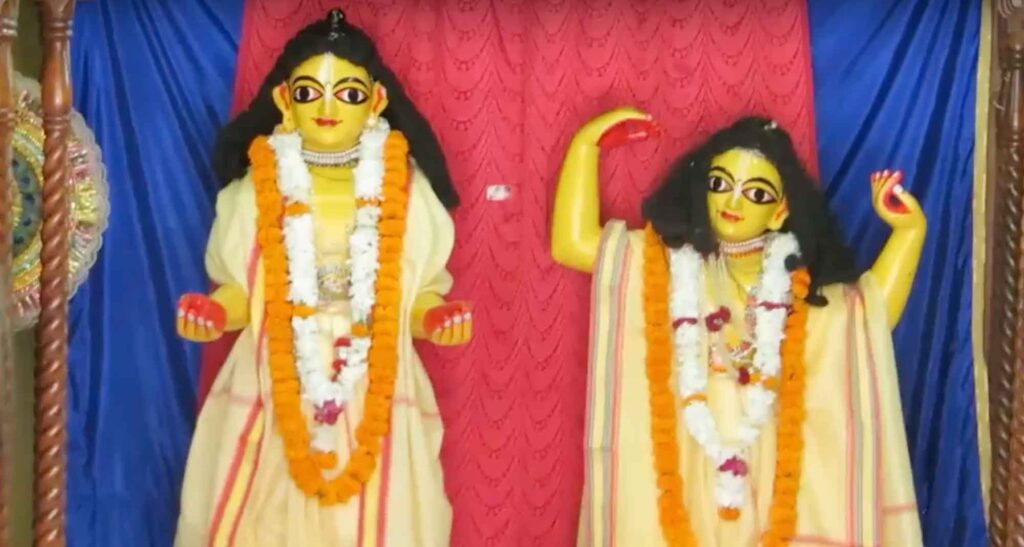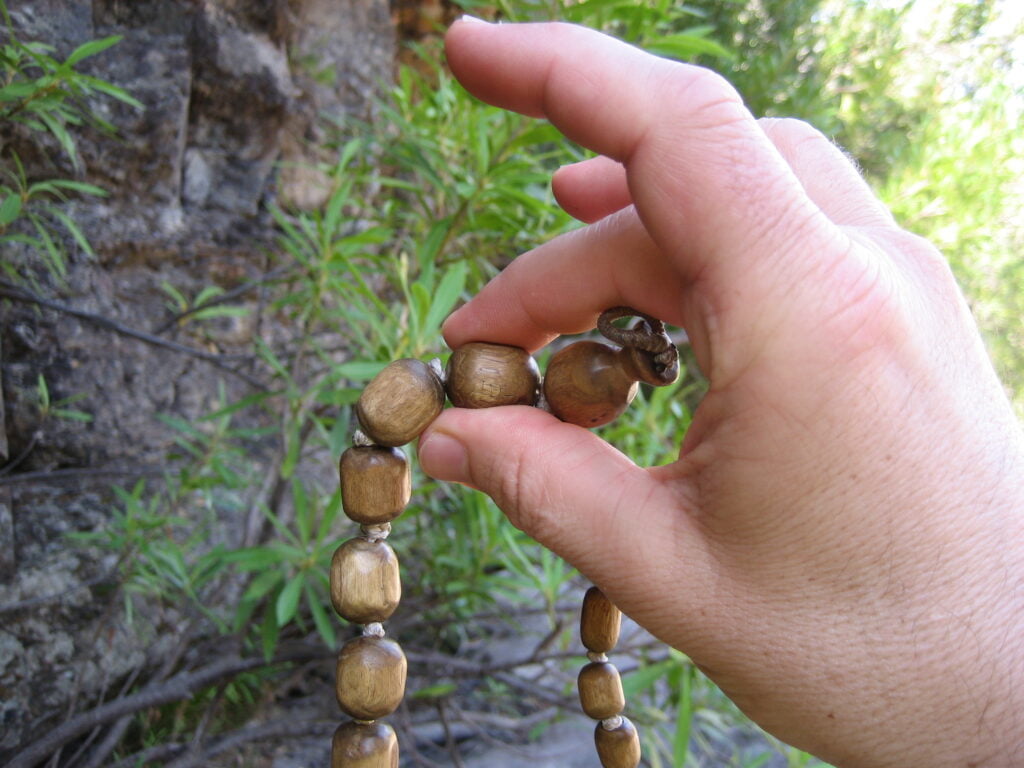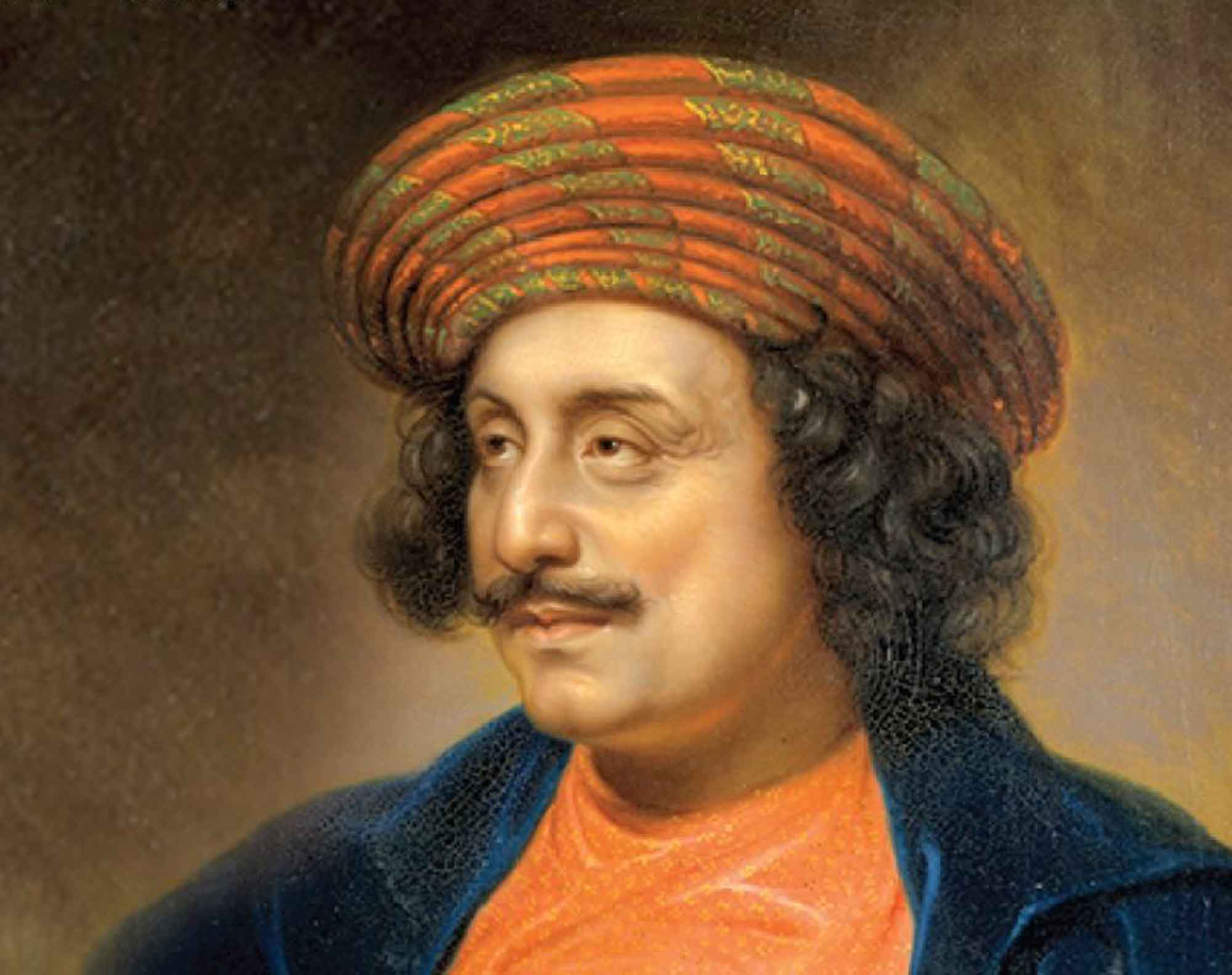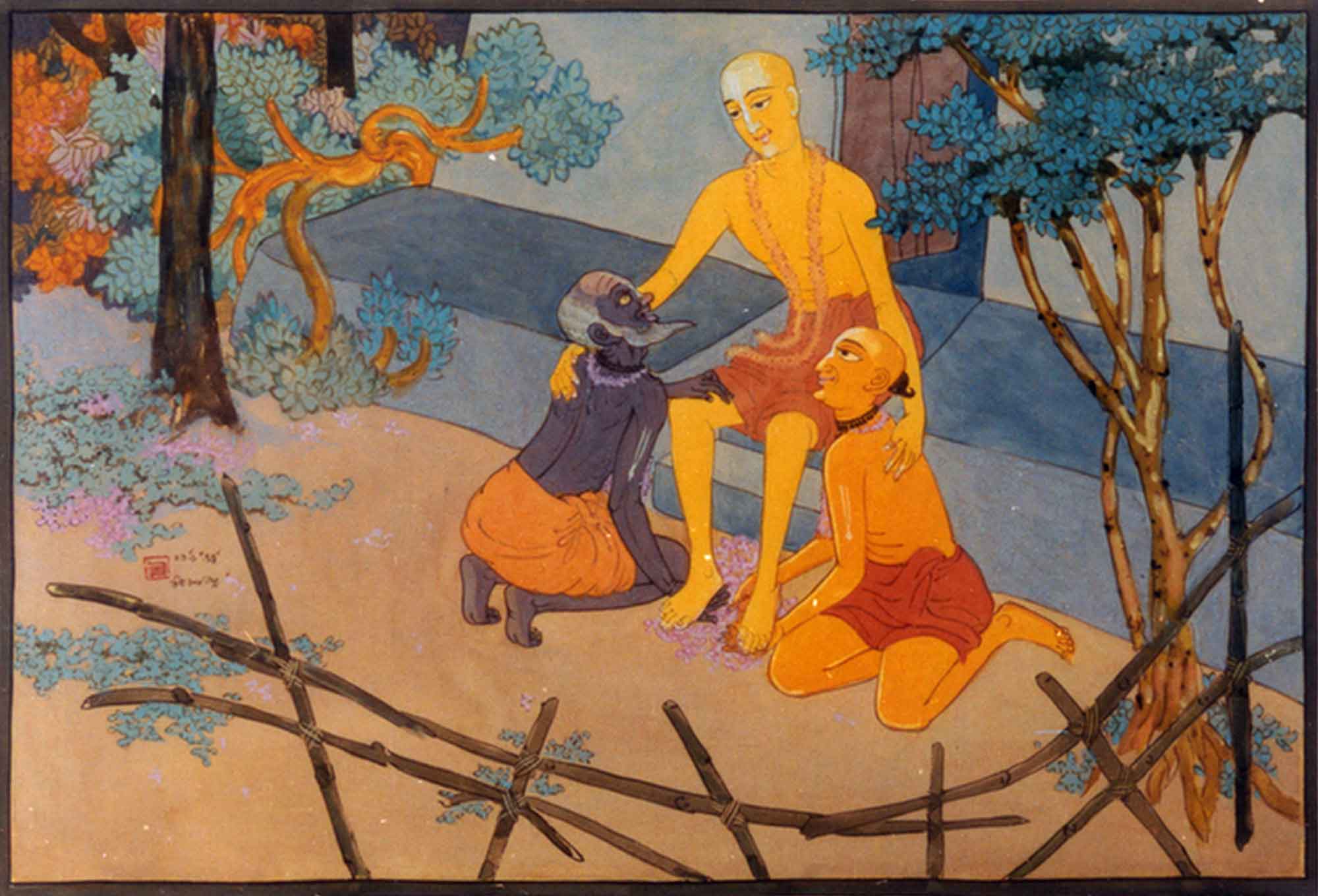Overview
Śraddhā was first published in Sajjana Toṣaṇi, Vol.9, issue 8 in 1897. In this article, Śrīla Bhaktivinoda Ṭhākura examines the important topic of śraddhā and its vital importance in the life of a practicing devotee.
(translated by Swami B.V. Giri)
Listen to this article:
From time immemorial, the jīva within has wandered throughout this universe enthralled by māyā. The intrinsic nature of the jīva is kṛṣṇa-dāsa, and that servitorship has been forgotten and for the sake of enjoyment, he has become māyā-dāsa.
jīvera svarūpa haya kṛṣṇera nitya-dāsa
(“The jīva’s intrinsic nature is as Kṛṣna’s eternal servant.” – Caitanya-caritāmṛta, Madhya-līlā 20.108)
kṛṣṇa bhuli sei jīva anādi-bahirmukha
ataeva māyā tāre deya saṁsāra-duḥkha
(“Forgetting Kṛṣṇa, the jīva becomes averse to Him from time immemorial. Thus, māyā bestows the miseries of the material world unto him.” – Caitanya-caritāmṛta, Madhya-līlā 20.117)
Enchanted by māyā, the jīva falls into this world, experiencing endless calamities, running in all directions, intoxicated with the hope of happiness. If he desires a particular object, he thinks there will be great happiness in attaining it, no matter how hard he tries – but actually there is no happiness in it. Then the mind focuses on another object, and he thinks there will be happiness in that. But there is no happiness there either. His hankering was not fulfilled and his heart was not satisfied. The enemy ‘makes him a slave and beats him with sticks’ and his stupor is not broken. The jīva does not want to give up his desires, and feels a little happiness in his slavery, thus the jīva remains greedy for more. Due to being proud of their wealth, the rich do not cast their glance towards the poor, and the intelligent pay no heed to the words of the foolish. Someone is puffed up because they have gained some knowledge in the form of ignorance, while another is overcome with sorrow because he hasn’t achieved that. Today, the jīva, who is a divine gem from the spiritual kingdom, has become filthy from the dust of saṁsāra. When the dust and mud of attachment to sense-objects are washed away by the pure water of śraddhā to Śrī Bhagavān, then the light of the gem of kṛṣṇa-bhakti will shine forth. Then that divine gem will proceed to the divine dhāma. But where is the water of śraddhā?
Whether it is acknowledging the existence of Īśvara in order to be free from this world and its unlimited suffering, or by seeking the advice of a sādhu while in sādhu-saṅga, or by discussing the śāstra and contemplating their true meaning, or any other reason, when the jīva’s mind has firm belief that Īśvara is great, He is the possessor of all potencies, and the jīva is finite and devoid of any power, that Īśvara is independent and the jīva is a manifestation of His acintya-śakti, that Īśvara is the Master and the jīva is His small, insignificant servant – only then does he discover ānandamaya (the state of supreme bliss) and takes on all difficulties to attain it, or a natural desire arises within the jīva to take refuge in Hari, the shelter of all, and little by little he endeavours to do that. This is the first stage of śraddhā. But because the inherent nature of the jīva has become perverted, he becomes absorbed in gross matter, thus in the absence of sādhu-saṅga and due to bad association, this śraddhā becomes totally hidden. So from that time on, sādhu-saṅga is necessary. By sādhu-saṅga, that śraddhā gradually increases, and as soon as śraddhā increases, his desperation also increases. The jīva must be careful in his research about how he will attain the feet of Śrī Bhagavān. First he observes that he is completely absorbed in anarthas, and his inherent nature is concealed. Eradicating his anarthas, he takes shelter at the feet of a sādhu, and being dedicated, he engages himself in bhajana. The name of this stage of śraddha is dṛdha (firm) or nirguṇa uddeśiṇi śraddhā (śraddhā focused on transcendence). This is the bhakti-latā-bīja (the seed of the creeper of bhakti). The form of śraddhā at this time is expressed in the following statement:
śraddhā śabde viśvāsa kahe sudṛḍha niścaya
kṛṣṇe bhakti kaile sarva-karma kṛta haya
(“The word śraddhā refers to firm belief in the words of the śāstra and that by kṛṣṇa-bhakti, all actions are accomplished.” – Caitanya-caritāmṛta, Madhya-līlā 22.62)
A jīva endowed with śraddhā has the firm belief that kṛṣṇa-bhakti alone is the inherent nature of the jīva, and apart from service to Śrī Kṛṣṇa, there is no other duty for the jīva. Therefore, by engaging in kṛṣna-bhakti, all other activities of the jīva are accomplished. However, being bound by māyā, the jīva’s inherent nature has become perverted. Thus, until he attains that nature, he should continue his life’s journey by cultivating those things that are beneficial for attaining Kṛṣṇa. In this way, he only accepts whatever is conducive to bhakti. Rarely should one accept that anything that is opposed to bhakti since it is not the duty of the jīva. The jīva who has śraddhā is not a karmādhikāra (one who follow the rules of karma-kāṇḍa), because śraddhā is superior to the results of niṣkāma karma (selfless action), and that śraddhā has naturally arisen within him. Śrī Kṛṣṇa tells Uddhava:
tāvat karmāṇi kurvīta na nirvidyeta yāvatā
mat-kathā-śravaṇādau vā śraddhā yāvan na jāyate
( Śrimad Bhāgavatam 11.3.45)
“As long as one is not attached to the results of karma, or has no faith in hearing and chanting, those topics concerning Me, he should continue to perform karma.” But the aforesaid person with śraddhā is no longer attached to karma, because he prays for kṛṣṇa-bhakti and nothing else. His ears like to hear hari-kathā – he is not unattached to it. He has sarva-dharmān parityajya – he has abandoned all dharma, karma, hopes and faith in other things, and only takes shelter in Bhagavān.
duḥkheṣv anudvigna-manāḥ sukheṣu vigata-spṛhaḥ
vīta-rāga-bhaya-krodhaḥ sthita-dhīr munir ucyate
(“One whose mind remains undisturbed by distress, who has no desire for pleasure, who is free from mundane attachment, fear and anger, is a sage of steady mind.” – Bhagavad-gītā 2.56)
He is without sorrow, without distress, and free from desire, attachment, fear and anger.
anyābhilāṣitā-śūnyaṁ jñāna-karmādy-anāvṛtam
ānukūlyena kṛṣṇānu-śīlanaṁ bhaktir uttamā
(“Superior bhakti is that which is favourable to the cultivation of service to Kṛṣṇa, which is free from other desires and not obscured by jñāna, karma etc” – Bhakti-rasāmṛta-sindhu 1.1.11)
Śrī Rūpa is always cautious to act according to the standards of uttama bhakti (superior bhakti). Therefore, in order to be situated in connection with śraddhā and attain Bhagavān Śrī Kṛṣṇa-candra, he surpasses the dharma and karma of a karma-yogī, and ignores the rational debates of the jñāna-yogī. This is because:
śraddhāvān jana haya bhakti-adhikārī
(“A person who possesses śraddhā is qualified for bhakti.” – Caitanya-caritāmṛta, Madhya-līlā 22.64)
Only a person with śraddhā is a fit recipient for bhakti. And also:
bhaktye bhagavānera anubhava pūrṇa-rūpa
(“By bhakti can one experience Bhagavān, whose form is perfect.”– Caitanya-caritāmṛta, Madhya-līlā 20.164)
Only by bhakti can one fully experience Bhagavān. Through jñāna and yoga, the effulgence of Brahman and only His expansion of Paramātmā can be realised. Therefore, śraddhā is the most honourable wealth of the jīva. As long as a sādhaka who possesses śraddhā resides in the realm of sādhana-bhakti, that śraddhā takes on the name of niṣṭhā (determination), ruci (taste), asakti (attachment) etc. according to the stage of his cultivation of devotion to Kṛṣṇa. Gradually, as bhāva (ecstasy) arises, then that śraddhā becomes nirguṇa-śraddhā (pure divine śraddhā unaffected by the modes of nature), and takes on the names of rāga or rati (loving attachment). That rati is the gateway to the temple of prema (love divine).
A jīva with śraddhā only prays for kṛṣṇa-bhakti and nothing else. If he subtly harbours other desires in his mind, then it should be understood that his śraddhā is not focused on transcendence. As long as he is not able to give up these desires in the association of sādhus, there is little hope of him ever attaining bhakti. Pure bhakti is the property of the jīva. If you wish to attain that bhakti, first of all you need śraddhā. Without śraddhā, it cannot be obtained.













